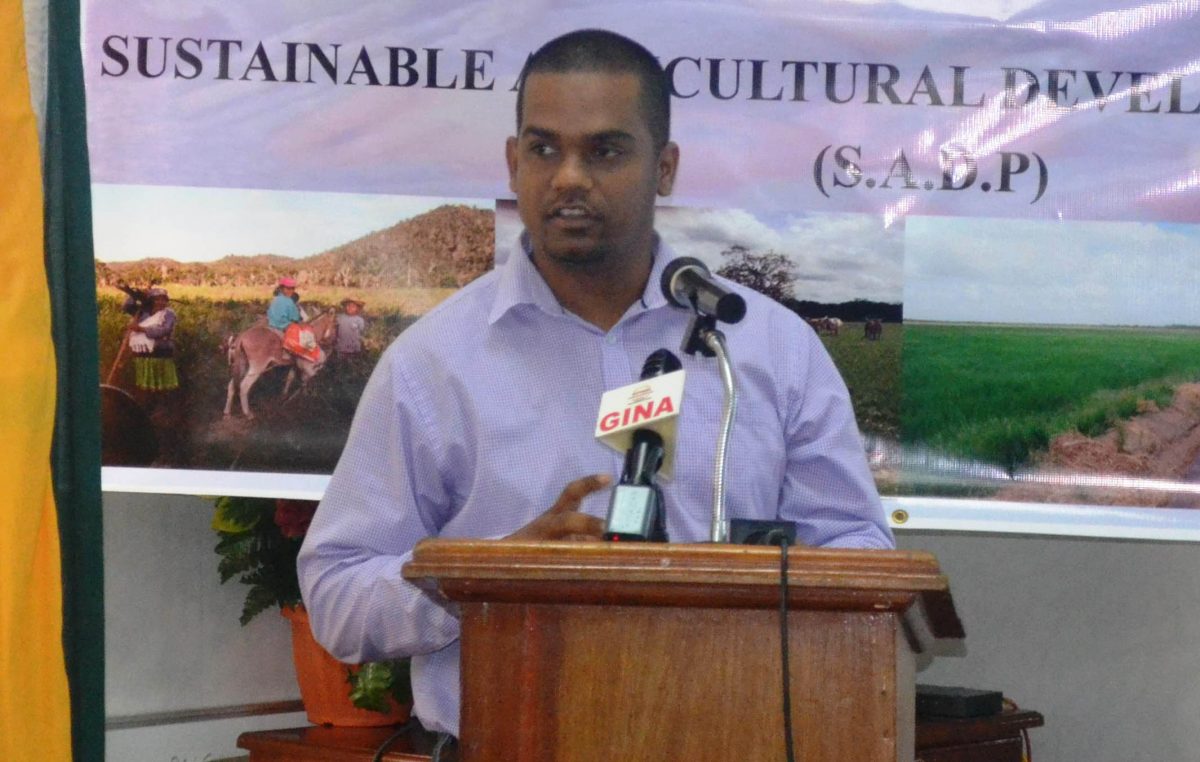An unresolved rift in 2019 between the community of Golden Grove and President’s College over pasture lands forced the Ministry of Agriculture to redirect funds that were earmarked for the establishment of a dairy processing plant.
This disclosure was made during yesterday’s Public Accounts Committee (PAC) meeting, where Government Chief Whip and PAC member Gail Teixeira scrutinized the ministry’s shortfall in expenditure. The shortfall was highlighted in the Auditor General’s (AG) 2019 report and it was pointed out that the budget agency recorded a $1.7B shortfall.
According to the AG’s report, as at 31 December 2019 the sum of $239M, from the Caribbean Development Fund Rural Agricultural Infrastructural Development Project had been expended. This resulted in a shortfall of $111M or 32% in expenditure for 2019. The intended benefits of the project, which included improved access to agricultural infrastructure and farmlands, and increased agricultural productivity, could be delayed, the AG Deodat Sharma commented in his report.
When questioned on what caused the shortfall for this specific project, Khemlall Alvin, who is the Project Coordinator explained that because of the disagreement between the school and the village, they were unable to move forward with the proposed facility.
To his knowledge, the issue remains unresolved and they were forced to redirect the money to finance an alternative project.
Alvin explained to the PAC that in the proposal for the project they were preparing to conduct zero grazing activities where the grass was harvested and fed to the dairy cattle. However, there was intrusion by cattle from the village on the lands earmarked for the growing of the grass. That resulted in the community contending it was its communal lands and their animals should be allowed to graze there.
On that note, the project was shelved and the monies were directed to the purchasing of tractors, trailers and other equipment to support agricultural activities in the hinterland.
Teixeira also raised questions over the shortfalls recorded in the Hinterland Environmentally Sustainable Agriculture Development Project.
The AG’s Report pointed out that “according to the Appropriation Account as at 31 December 2019, amounts totalling $44.999M were expended from the budgetary allocation of $240M, resulting in a shortfall of $195.001M or 81%. Similar shortfalls in expenditure of 81% and 94% were noted for 2018 and 2017 respectively.”
Raymond Latchman, the project officer on the Programme related that they faced several difficulties in the early stages of the project resulting in budgeted sums not being spent. They encountered difficulty in contracting a financial institution to manage the investment funds. There were also constraints in the development of the investment plans and delays in recruitment of staff, he highlighted.
The officer told the PAC that they were able to overcome the hurdles and accelerated spending of the allocated money.
Financing for the programme was via a loan from the Inter-national Fund for Agricultural Development (IFAD).
On 21 March 2017, IFAD and the Government of Guyana entered into an agreement to improve the livelihood resilience through income generation, access to assets, improved nutrition and adaptation to climate variability. The sum of $240M was allotted in 2019 for: (a) investment plans for development of local value chains; (b) establishment of investment fund for entrepreneurial, agricultural based ventures in Regions 1 and 9; (c) conduct of a State of Food and Agriculture Study (SOFA) in Mabaruma and Moruca; (d) infrastructure to promote community resilience; and (e) Institutional strengthening, the AG report said.
The AG highlighted in his report, that approximately thirty-three months after the effective date of the project, amounts totaling US$357,292 or 3% of the total project cost was expended. The slow delivery of the project’s activities could result in it not achieving its stated objectives within the stipulated time which included improved access to financing for farmers, increased income generating opportunities, and enhanced food security and nutrition, he added.
The studies were done in 2021 in both Regions 1 and 9 and the project has been given a year’s extension for all aspects to be completed. It was stated that a sum of US $2M remains to be spent and the project will concluded in March 2024.
The Permanent Secretary of the Ministry, Delma Nedd, while responding to Teixeira on the efforts the ministry has put in place to avoid shortfalls, said they have stricter monitoring in place.
Though the committee didn’t seem too pleased with the response, Nedd explained they are working with the Public Sector Investment Programme, which has been in place for years and the Ministry has its own Google Drive updating system, where officers give updates on programmes. She said through the drive they can also easily check on projects and request real time updates. This system she said gives them the ability to ask frequent questions and at the same time monitor the performance of projects.
The Audit Office had recommended that where applicable, the Head of Budget Agency monitor the execution of its programmes more closely, with a view of achieving its goals.






